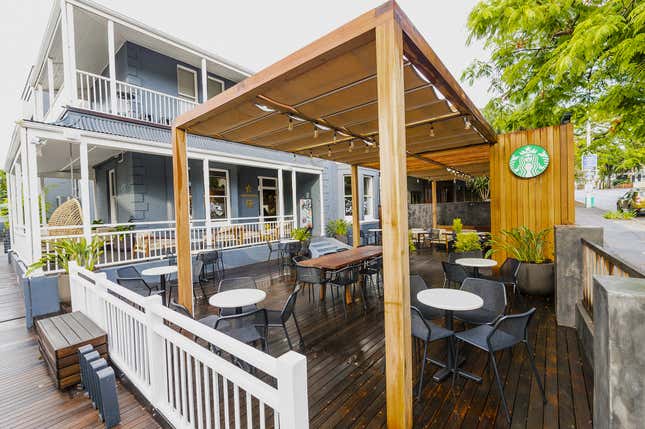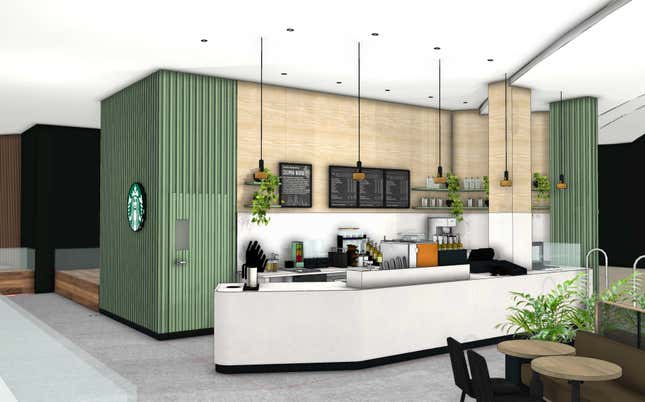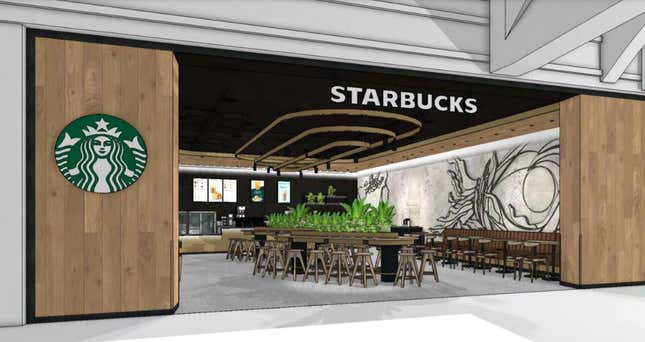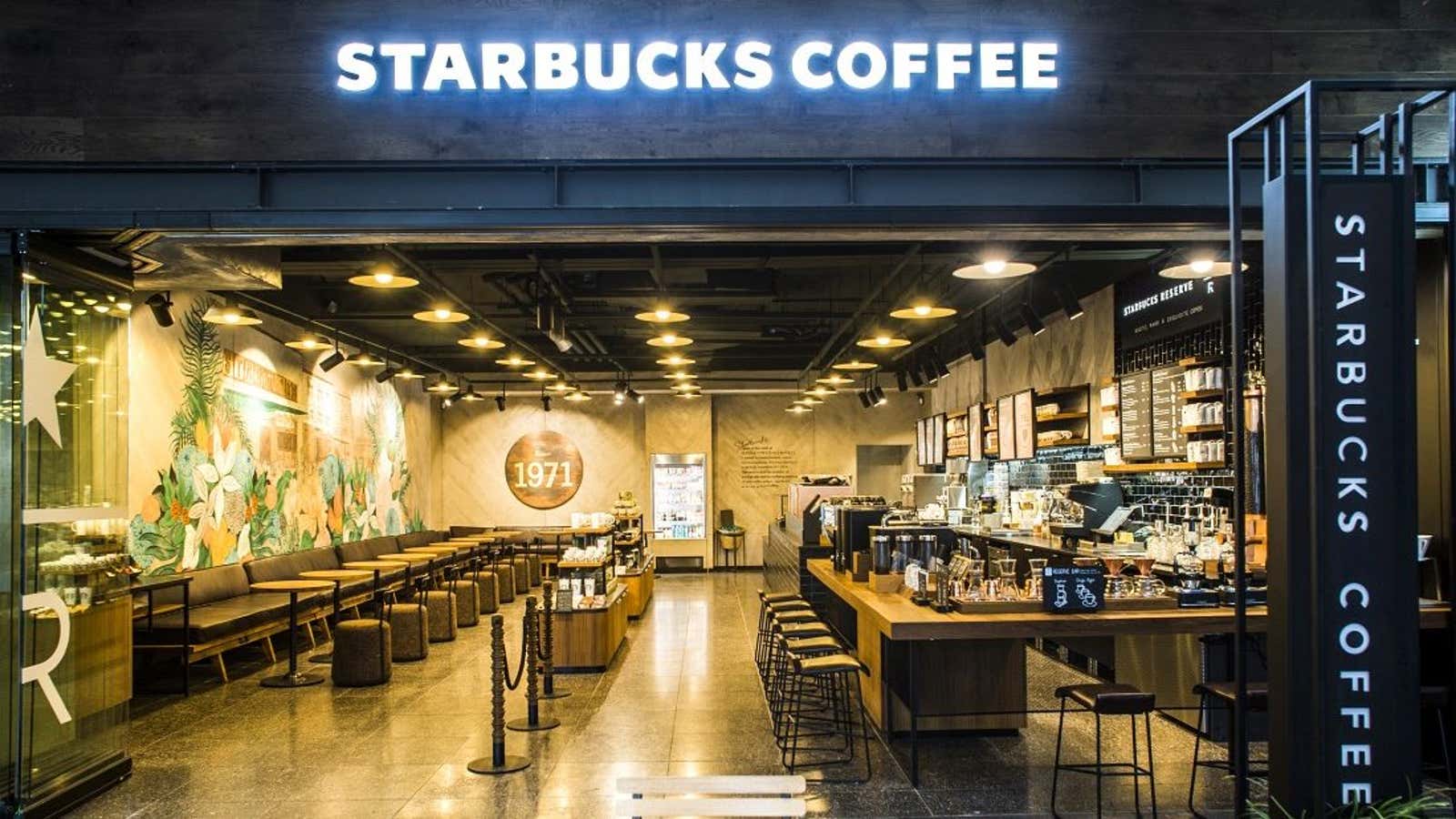About 18 months ago, Starbucks’ four-year long foray into South Africa looked like it might have been a step too far. Taste Holdings, the franchisee which brought the US coffee retail brand to Johannesburg, was struggling to make the deal work.
After a review, Taste concluded it would need to spend nearly $50 million and build 200 more stores over the next seven to eight years to be truly successful. It realized it was an investment it couldn’t afford.
It wasn’t alone in those struggles. South Africa’s economy, which has seen anemic growth in the last few years, has been tough for global consumer brand entrants trying to navigate a difficult market.
Last year, Grand Parade Investments closed down Dunkin Donuts and Baskin Robbins in South Africa due to poor performance. The closures haven’t just been in the food and beverage category but also in clothing with Nine West, Mango, and River Island all shutting down their independent stores.
And then the global pandemic struck.
There might have been the expectation Starbucks’ next South Africa licensee, Rand Group, which bought it from Taste for 7 million rand ($473,000) a year ago, would have been badly hit in an economy which all but collapsed after a national lockdown in March.

But instead, Starbucks South Africa is expanding with a multi-pronged retail approach and a focus on remote workers who need a break from working in their home environments. The strategy has seen the brand planning to add eight new outlets to the 14 stores already operating in and around Johannesburg and Durban, with new stores in Cape Town and Pretoria among others as well as the company’s first store inside a grocery retail setting.
In partnership with supermarket chain Checkers, Starbucks FreshX Rosebank opened in early December, and aims to be a one-stop option whether people want to eat, work, shop or do all three.
Despite Starbucks’ recent economic troubles and its stark inequality, there is a burgeoning demand in South Africa. “We have a thriving cafe culture in all of the big cities and a burgeoning one in the small country towns across the country,” says Iain Evans, publisher of Coffee Magazine.
Starbucks Southern Africa chief executive Adrian Maizey says he is not deterred by the country’s weakening economy or Covid-related operational challenges. Maizey, who declined to reveal his company’s investment in the brand, is counting on factors such as free internet connectivity, in a country where it is expensive and often unreliable, to help drive profitability.

“The majority of our sales are not coffee, but colder drinks like frappuccinos and iced tea,” says Maizey. “What we offer is a place where you can work, where you can connect with your friend or with the world over the internet. And you can have a coffee or a frappuccino while you’re there. I think it’s the mix of what we’re offering versus just betting on a coffee culture.”
With lockdown restrictions now eased, Starbucks faces much more competition for customers still working from home. Local cafés that rival Starbucks’s quality, established franchised coffee retail stores, and convenience store coffee brands such as Seattle Coffee won’t make growth easy for the global brand, says Michael Wood, managing director of Aperio, a FMCG business consulting company.

As coronavirus cases start to spike again in South Africa, there are fears there could be a second wave coming for Africa’s worst hit country, this could see the recovering economy‘s hopes thwarted.
But Maizey says being both conservative and bullish will be the key to longevity. “It’s on us to modify the business model to be viable at between 60% to 80% of where we would have been before. If we can trend up towards a 100% by improving our offering, then I think we’re in for a good run.”
Sign up to the Quartz Africa Weekly Brief here for news and analysis on African business, tech, and innovation in your inbox
